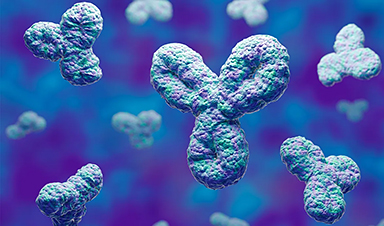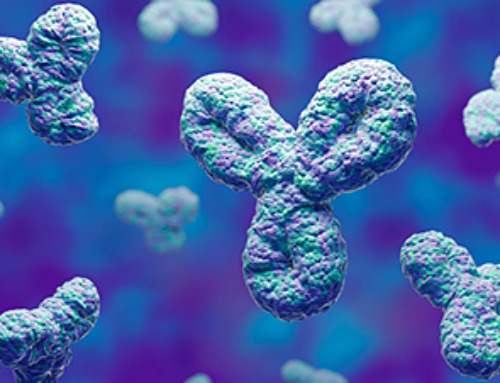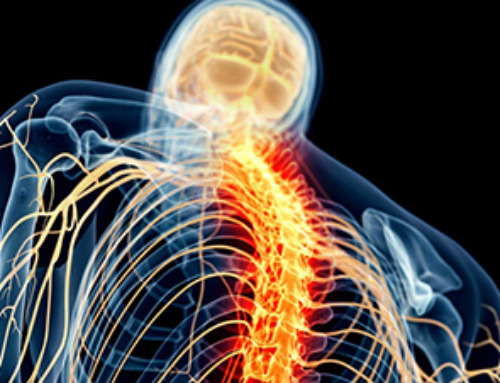A study from Keck Medicine of USC found that heavy drinkers with diabetes, high blood pressure, or a large waistline are up to 2.4 times more likely to develop advanced liver disease. These conditions may amplify alcohol’s toxic effects on the liver, leading to severe damage.
Not everyone who drinks the same amount of alcohol faces the same risk of liver disease. A new study published on February 3 in Clinical Gastroenterology and Hepatology by Keck Medicine of USC suggests that three common health conditions — diabetes, high blood pressure, and a high waist circumference — could be key factors. Researchers found that heavy drinkers with any of these conditions are up to 2.4 times more likely to develop advanced liver disease.
“The results identify a very high-risk segment of the population prone to liver disease and suggest that preexisting health issues may have a large impact on how alcohol affects the liver,” said Brian P. Lee, MD, MAS, a hepatologist and liver transplant specialist with Keck Medicine and principal investigator of the study.
The Link Between Cardiometabolic Health and the Liver
Diabetes, high blood pressure, and a high waist circumference (defined as over 35 inches for women and 40 inches for men) are part of a group of five cardiometabolic risk factors. These conditions, commonly linked to obesity, also increase the risk of heart attacks and strokes.
Cardiometabolic risk factors have been linked to the buildup of fat in the liver (also known as metabolic dysfunction-associated steatotic liver disease), which can lead to fibrosis, or scarring of the liver. These risk factors affect more than one in three Americans, and cardiometabolic health has been worsening among the population, especially among those under 35, according to Lee.
Rising Alcohol Consumption and Its Consequences
Alcohol also causes fat buildup in the liver, and alcohol consumption has been on the rise since the COVID-19 pandemic, said Lee. Due to the prevalence of both cardiometabolic risk factors and drinking in the United States, Lee and his fellow researchers undertook the study to investigate which cardiometabolic risk factors predisposed the liver to damage from alcohol.
They analyzed data from the National Health and Nutrition Examination Survey, a large national survey of more than 40,000 participants, looking at the intersection of heavy drinking, individual cardiometabolic risk factors and the incidences of significant liver fibrosis. Significant liver fibrosis refers to liver scarring that can lead to liver failure.
For the study, heavy drinking was characterized as 1.5 drinks a day for women (20 grams) and two drinks a day for men (30 grams).
Who Is at the Highest Risk?
Researchers discovered that heavy drinkers with either diabetes or a high waist circumference were 2.4 times more likely to develop advanced liver disease and those with high blood pressure 1.8 times more likely. They found that the other two cardiometabolic risk factors — high triglycerides (elevated levels of a type of fat in the blood) and low HDL (high-density lipoprotein or “good” cholesterol) had less significant correlations to liver disease.
Why Are These Risk Factors So Dangerous?
While the study did not analyze why these three cardiometabolic risk factors are more dangerous for the liver, Lee speculates that these conditions share a common pathway to fat buildup in the liver that when combined with extra fat deposits in the liver from excessive alcohol, can cause significant damage.
Lee emphasizes that the study does not imply it is safe for those without these three cardiometabolic risks to consume large amounts of alcohol. “We know that alcohol is toxic to the liver and all heavy drinkers are at risk for advanced liver disease,” he said.
Lee hopes that the study results will encourage people to consider their individual health and risk profile when making decisions about alcohol consumption. He would also like to see practitioners offer more personalized health screenings and interventions for those who drink with cardiometabolic risk factors so that liver damage among this high-risk group can be caught early and treated.
Reference: “Association of Alcohol and Incremental Cardiometabolic Risk Factors with Liver Disease: A National Cross-Sectional Study” by Brian P. Lee, MD, MAS, Justene Molina, MPH, Steve Kim, MPH, Jennifer L. Dodge, MPH and Norah A. Terrault, MD, MPH, 3 February 2025, Clinical Gastroenterology and Hepatology.
DOI: 10.1016/j.cgh.2025.01.003
News
Specially engineered antibody delivers RNA therapy to treatment-resistant tumors
Elias Quijano, PhD; Diana Martinez-Saucedo, PhD; Zaira Ianniello, PhD; and Natasha Pinto-Medici, PhD, there are 25 other contributors, most from Yale's Department of Therapeutic Radiology and from the departments of genetics, molecular biophysics and [...]
Vaccinated women face fewer cervical cancer risks
New data from Denmark shows the HPV vaccine’s powerful long-term impact, while also revealing why cervical cancer screening is still essential. A Danish study published in the journal Eurosurveillance reports that women who received the human [...]
3D-printed implant offers a potential new route to repair spinal cord injuries
A research team at RCSI University of Medicine and Health Sciences has developed a 3-D printed implant to deliver electrical stimulation to injured areas of the spinal cord, offering a potential new route to [...]
Nanocrystals Carrying Radioisotopes Offer New Hope for Cancer Treatment
The Science Scientists have developed tiny nanocrystal particles made up of isotopes of the elements lanthanum, vanadium, and oxygen for use in treating cancer. These crystals are smaller than many microbes and can carry isotopes of [...]
New Once-a-Week Shot Promises Life-Changing Relief for Parkinson’s Patients
A once-a-week shot from Australian scientists could spare people with Parkinson’s the grind of taking pills several times a day. The tiny, biodegradable gel sits under the skin and releases steady doses of two [...]
Weekly injectable drug offers hope for Parkinson’s patients
A new weekly injectable drug could transform the lives of more than eight million people living with Parkinson's disease, potentially replacing the need for multiple daily tablets. Scientists from the University of South Australia [...]
Most Plastic in the Ocean Is Invisible—And Deadly
Nanoplastics—particles smaller than a human hair—can pass through cell walls and enter the food web. New research suggest 27 million metric tons of nanoplastics are spread across just the top layer of the North [...]
Repurposed drugs could calm the immune system’s response to nanomedicine
An international study led by researchers at the University of Colorado Anschutz Medical Campus has identified a promising strategy to enhance the safety of nanomedicines, advanced therapies often used in cancer and vaccine treatments, [...]
Nano-Enhanced Hydrogel Strategies for Cartilage Repair
A recent article in Engineering describes the development of a protein-based nanocomposite hydrogel designed to deliver two therapeutic agents—dexamethasone (Dex) and kartogenin (KGN)—to support cartilage repair. The hydrogel is engineered to modulate immune responses and promote [...]
New Cancer Drug Blocks Tumors Without Debilitating Side Effects
A new drug targets RAS-PI3Kα pathways without harmful side effects. It was developed using high-performance computing and AI. A new cancer drug candidate, developed through a collaboration between Lawrence Livermore National Laboratory (LLNL), BridgeBio Oncology [...]
Scientists Are Pretty Close to Replicating the First Thing That Ever Lived
For 400 million years, a leading hypothesis claims, Earth was an “RNA World,” meaning that life must’ve first replicated from RNA before the arrival of proteins and DNA. Unfortunately, scientists have failed to find [...]
Why ‘Peniaphobia’ Is Exploding Among Young People (And Why We Should Be Concerned)
An insidious illness is taking hold among a growing proportion of young people. Little known to the general public, peniaphobia—the fear of becoming poor—is gaining ground among teens and young adults. Discover the causes [...]
Team finds flawed data in recent study relevant to coronavirus antiviral development
The COVID pandemic illustrated how urgently we need antiviral medications capable of treating coronavirus infections. To aid this effort, researchers quickly homed in on part of SARS-CoV-2's molecular structure known as the NiRAN domain—an [...]
Drug-Coated Neural Implants Reduce Immune Rejection
Summary: A new study shows that coating neural prosthetic implants with the anti-inflammatory drug dexamethasone helps reduce the body’s immune response and scar tissue formation. This strategy enhances the long-term performance and stability of electrodes [...]
Scientists discover cancer-fighting bacteria that ‘soak up’ forever chemicals in the body
A family of healthy bacteria may help 'soak up' toxic forever chemicals in the body, warding off their cancerous effects. Forever chemicals, also known as PFAS (per- and polyfluoroalkyl substances), are toxic chemicals that [...]
Johns Hopkins Researchers Uncover a New Way To Kill Cancer Cells
A new study reveals that blocking ribosomal RNA production rewires cancer cell behavior and could help treat genetically unstable tumors. Researchers at the Johns Hopkins Kimmel Cancer Center and the Department of Radiation Oncology and Molecular [...]





















